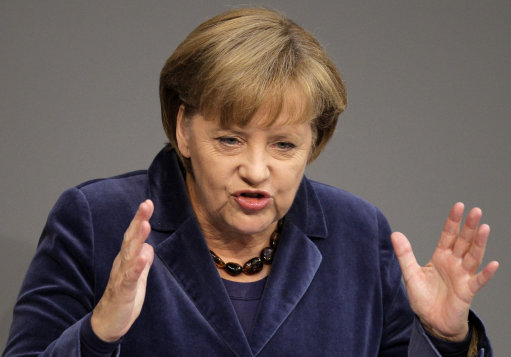Don’t Fear The Greek Default: It’s A False Alarm
 TO a large extent all this alarm about what’s going to happen when Greece defaults is just that: alarm. Alarm with no real basis in anything that’s really likely to happen.
TO a large extent all this alarm about what’s going to happen when Greece defaults is just that: alarm. Alarm with no real basis in anything that’s really likely to happen.
There’s two things you need to know, over and above the usual background.
That usual background being that Greece owes around €350 billion and there’s no way it can pay it back. So, default it will have to be.
The two things? The first is that banks don’t just sit there and wait for the default. They do what is called “mark to market”, or at least are supposed to, and this means that when a loan or a bond is going sour they write down the value of that bond or loan. In effect, they take the loss they think they can see coming now, rather than waiting for that loss to actually arrive. We’ve seen in recent days that RBS has written their Greek debt down to 50% of face value and so too has Deutsche Bank. We’re pretty sure actually that all of the UK and most of the German banks have done this. We worry a bit that most of the French ones haven’t but that is Sarkozy’s problem, not ours.
So, pretty much, we think that the banks have already taken the losses of a Greek default, all we’re waiting for now is the confirmation of those losses. The banks won’t all go bust in short.
Then there’s the derivatives, those bits that worry people so. The ever popular CDS for example, a way of betting on someone going bust. What seems to be missed here is again two things. One is that everyone has to post collateral. That is, if you’ve got a CDS and it starts losing money then every day you’ve got to send over the money you’re losing to the bloke who is making it. You’ve got to mark to market again. Whatever loss you make you have already made: there is no huge explosion that will come with Greek default, the money has already moved.
The second thing is how small the CDS market is. Here’s the FT giving us the full figures for Greece:
If a credit event could be proven tomorrow and none of the current counterparties failed, the maximum amount that could settle for CDS referencing Greece is $3.7bn. Even that amount is an overestimate because it assumes a final price of zero being determined in the auction. If the final price was say, 50, then the total amount changing hands, on a net basis when all is said and done, would be $1.75bn.
Yes, I know, $1.75 billion is real money out here in the real world but in banking it’s a pittance. Near a rounding error. Barclay’s alone has $50 billion of capital: for the whole market to have to shuffle around $1.75 billion, most of which has already moved because of mark to market, well, it’s just not one of those things that is important or something to worry about.
There are real economic problems out there to do with the eurozone but Greek default just isn’t one of them.
Image: German Chancellor Angela Merkel gestures during her speech at the German federal parliament, Bundestag, in Berlin, Germany, Wednesday, Oct. 26, 2011. Merkel is calling for the private sector to make a significantly larger contribution than previously agreed to reduce Greece’s debt burden. Merkel said the aim of a European summit Wednesday must be a solution that allows for Greece to cut its debt load to 120 percent of gross domestic product by 2020.
Posted: 27th, October 2011 | In: Money Comment (1) | TrackBack | Permalink


